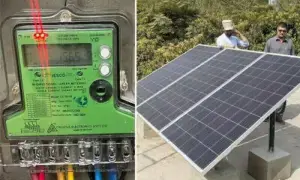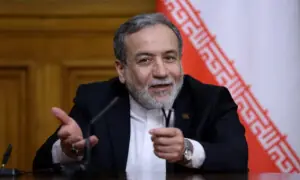U.S., Israel to sign joint pledge on denying nuclear weapon to Iran
3 min readU.S. President Joe Biden and Israeli Prime Minister Yair Lapid on Thursday will sign a joint agreement pledging to prevent Iran from acquiring a nuclear weapon on the second day of Biden’s Middle East trip.
A senior Biden administration official, describing the joint declaration for reporters in a conference call, said the agreement will expand on the long-standing security relationship between the United States and Israel.
“This declaration is pretty significant, and it includes a commitment to never allow Iran to acquire a nuclear weapon and to address Iran’s destabilizing activities, particularly threats to Israel,” the official said.
Biden, on his first Middle East trip since taking office in early 2021, arrived in Israel on Wednesday and has talks with Israeli leaders on Thursday. He will appear at a joint news conference with Lapid.
Biden will meet Palestinian leaders in the occupied West Bank on Friday and hold talks with leaders of Saudi Arabia and other Gulf allies in Jeddah on Saturday.
Biden faces an uphill battle persuading Iran to rejoin the Iran nuclear agreement that his predecessor, Donald Trump, abandoned in 2018.
Biden is likely to face questions from Israel and from Gulf states such as Saudi Arabia and the United Arab Emirates about the wisdom of reviving the Iran nuclear deal and what the United States will do to counter Iran’s regional actions, regardless of whether the deal is resurrected.
In an Israeli television interview on Wednesday, Biden said the deal represented the best chance of holding up Iran’s attempts to develop a nuclear bomb.
“The only thing worse than the Iran which exists now is an Iran with nuclear weapons and if we can return to the deal, we can hold them tight,” he said. Asked if the United States could use force if needed, he said: “If that was the last resort, yes.”
Some Israeli as well as Gulf Arab officials believe the deal’s sanctions relief would provide Iran far more money to support proxy forces in Lebanon, Syria, Yemen and Iraq. They are also skeptical about whether the Biden administration will do much to counter Iran’s regional activities.
Iran denies that its nuclear programme is aimed at acquiring nuclear weapons.
The U.S. official, asked if the declaration is about buying some time with Israel as Washington pursues negotiations with Iran, said: “If Iran wants to sign the deal that has been negotiated in Vienna, we have made very clear we’re prepared to do that. And, at the same time, if they’re not, we will continue to increase our sanctions pressure, we will continue to increase Iran’s diplomatic isolation.”
The official said the joint agreement will pledge ongoing U.S. military aid for Israel and will emphasize support for the Abraham Accords, the agreements between Israel and a handful of Arab states that the Trump administration helped broker.
For the latest news, follow us on Twitter @Aaj_Urdu. We are also on Facebook, Instagram and YouTube.



























Comments are closed on this story.